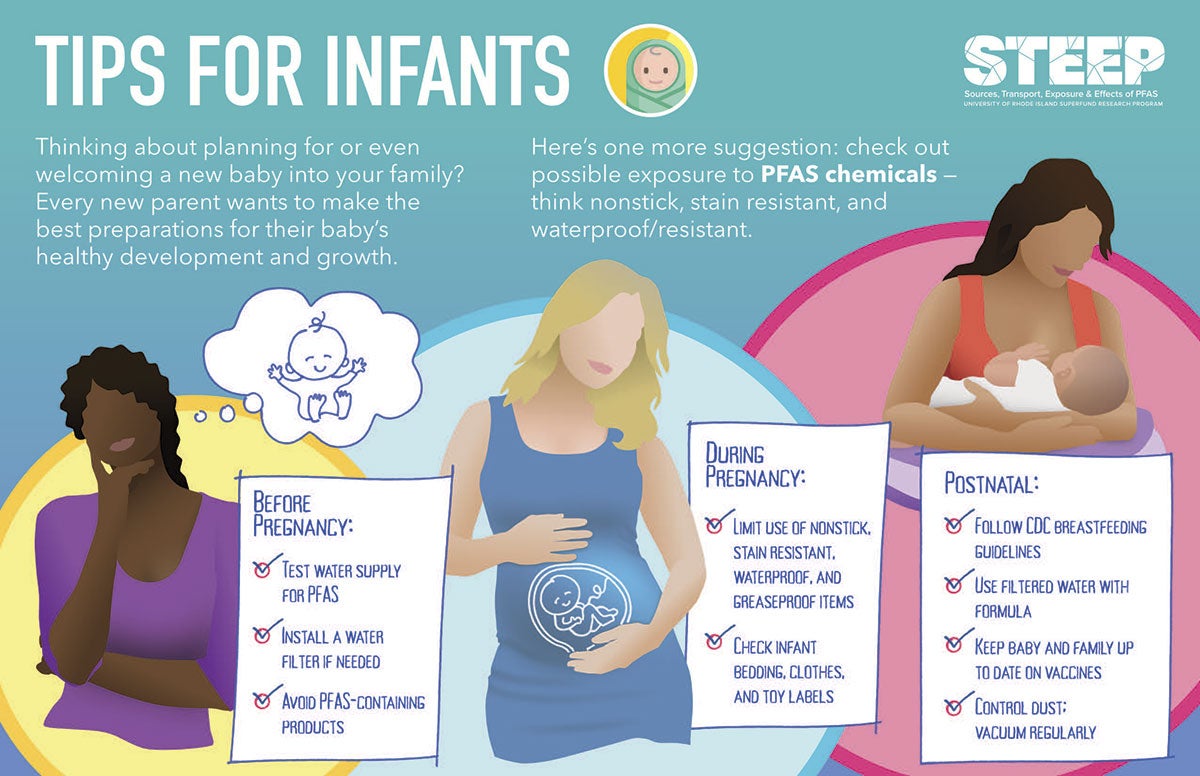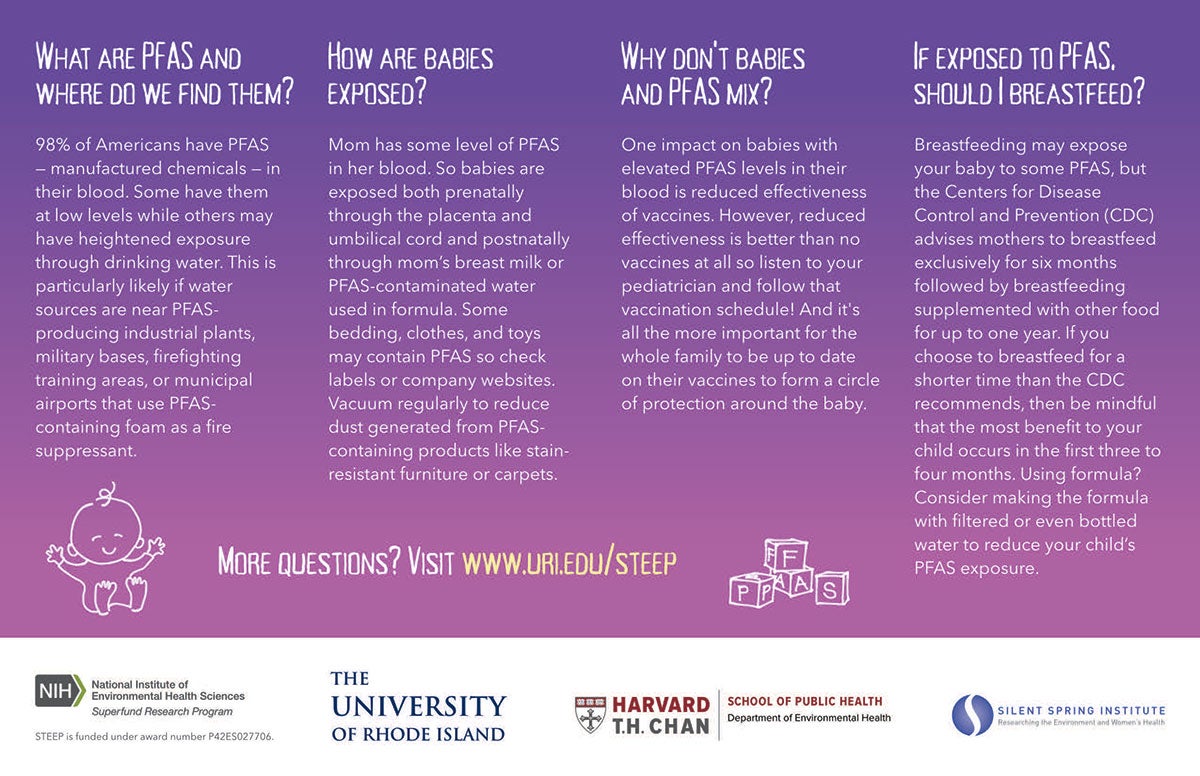Health Risks

There is significant and widespread exposure of the general public to various PFAS, particularly PFOS (perfluorooctanesulfonic acid) and PFOA (perfluorooctanoic acid), which are specific compounds within the overall group of PFAS. Today, more and more evidence is emerging concerning the adverse health effects at levels the typical American experiences regardless of geographic location. Throughout the U.S., various PFAS were detected in 98% of human blood samples analyzed through 2012. Exposure to the most notorious PFAS, i.e., PFOA and PFOS, is decreasing in the general population, while newer and alternative PFAS are either increasing or show little indication of decreasing—both of which are likely threats to human and environmental health. High exposure from PFAS contaminated drinking water has been shown to contribute to kidney and testicular cancers and thyroid disease, among others.
Current animal studies have associated PFAS with a suite of adverse health effects including obesity, liver toxicity, and reproductive toxicity, and partial confirmation regarding PFAS impacts on humans has been obtained in additional studies. For example, in landmark epidemiological studies on the Faroe Islands, STEEP co-lead Dr. Philippe Grandjean and collaborators found that the immunotoxic effects observed in early life development are due to emerging PFAS contaminants.
Human exposure to PFAS is ubiquitous and adversely impacts human health, including:
- Elevated serum-cholesterol
- Ulcerative colitis
- Thyroid disease
- Kidney and testicular cancers
- Pregnancy-induced hypertension
- Immunotoxicity in children
There is evidence from laboratory studies of animals of additional effects, including:
- Liver, testicular, and pancreatic cancers
- Liver enlargement
- Mammary gland tumors
- Altered breast development
- Suppressed immune function
To find out more, visit these links:
PFAS in the US Population – Agency for Toxic Substances and Disease Registry (ATSDR)
What are the health effects of PFAS? – Agency for Toxic Substances and Disease Registry (ATSDR)
PFAS Exposure and Risk of Cancer – National Cancer Institute



